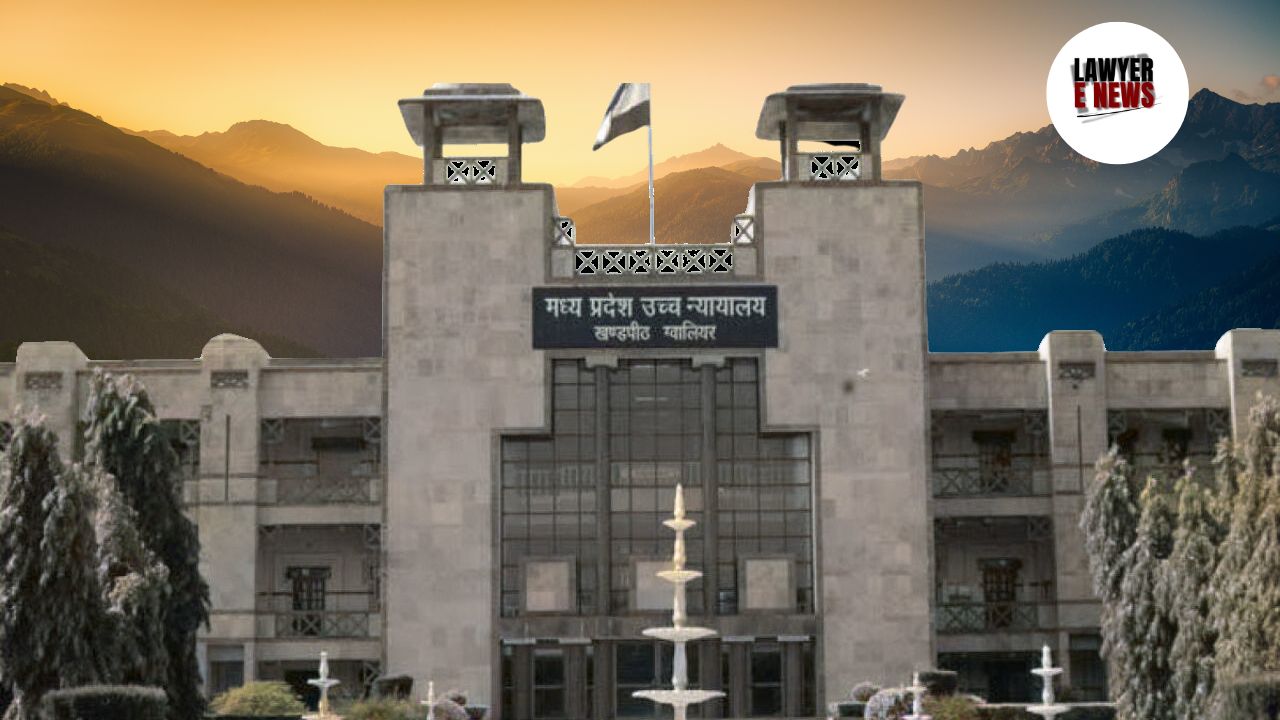-
by Admin
15 February 2026 5:01 PM



Mental cruelty caused by the respondent-wife’s erratic behavior and suppression of mental illness has caused harassment, humiliation, and societal insult to the appellant-husband - Madhya Pradesh High Court, Gwalior Bench, in First Appeal No. 1821 of 2018, granted divorce to the appellant-husband on the grounds of cruelty, desertion, and irretrievable breakdown of marriage. The judgment, delivered by Hon’ble Shri Anand Pathak and Hon’ble Shri Hirdesh, JJ, overturned the Family Court's decision, which had earlier dismissed the divorce petition. The Court found that the appellant’s allegations of cruelty and desertion were supported by unrebutted evidence and upheld under Section 13(1)(ia) of the Hindu Marriage Act, 1955.
The appellant-husband had sought divorce on the grounds of mental cruelty caused by the respondent-wife’s behavior and her family’s suppression of her mental illness at the time of marriage. The appellant testified that the respondent exhibited erratic behavior, including hallucinations, insomnia, and aggressive actions. He stated that the respondent:
“Used to say someone was following her, spying on her, or calling her name, and she claimed to see a woman’s body even though nothing of the sort occurred. She did not sleep at night, roamed aimlessly, and displayed a complete lack of awareness about her surroundings and clothing.”
The Court observed that such behavior caused significant mental agony to the appellant, making cohabitation impossible. The testimony of the appellant and a neighbor (AW-2) went unrebutted, as the respondent did not appear before either the Family Court or the High Court to contest the allegations.
The bench cited Samar Ghosh v. Jaya Ghosh (2007), where the Supreme Court observed:
“Cruelty can be physical or mental. If it is mental, the inquiry must begin as to the nature of the cruel treatment and its impact on the spouse. Whether it caused reasonable apprehension that it would be harmful or injurious to live with the other is ultimately a matter of inference drawn from the facts.”
The High Court held that the respondent’s behavior, combined with the suppression of her pre-existing mental condition by her family, amounted to mental cruelty under Section 13(1)(ia) of the Hindu Marriage Act.
"Desertion Requires Both Separation and the Intent to Abandon the Relationship"
The appellant further alleged that the respondent deserted him in June 2012, leaving their matrimonial home to live with her parents without justifiable cause. Since then, the couple had been living separately for over 12 years.
The Court relied on the principles of desertion outlined in Bipinchandra Jaisinghbhai Shah v. Prabhavati (1957), where the Supreme Court held:
“For desertion, two essential conditions must be there: (1) the factum of separation, and (2) the intention to bring cohabitation permanently to an end (animus deserendi).”
The Court noted that the appellant’s testimony regarding the respondent’s desertion was also unchallenged. It found that the long separation, coupled with the respondent’s lack of any effort to reconcile or explain her absence, fulfilled the criteria for desertion.
"Irretrievable Breakdown of Marriage: A Long Separation Indicates the Marital Bond is Beyond Repair"
Citing the Supreme Court’s rulings in R. Srinivas Kumar v. R. Shametha (2019) and Neha Tyagi v. Lt. Col. Deepak Tyagi (2022), the High Court emphasized that irretrievable breakdown of marriage is a valid ground for divorce. It observed:
“Where the marital relationship has broken down irretrievably, and there is a long separation and absence of cohabitation, continuation of such a marriage would only mean giving sanction to cruelty inflicted on both parties.”
The Court further held: “The parties have been living separately since 2012. The matrimonial bond is completely broken and beyond repair. The long separation, absence of cohabitation, and existing bitterness make it clear that there is no possibility of reconciliation.”
The bench concluded that continuation of the marriage would constitute mental cruelty to both parties under Section 13(1)(ia) of the Hindu Marriage Act.
Setting aside the Family Court’s dismissal of the divorce petition, the High Court allowed the appeal and granted a decree of divorce. However, the Court also directed the appellant-husband, a laborer, to provide financial support to the respondent-wife by depositing ₹2,00,000 as permanent alimony. The decree of divorce was made conditional upon the payment of alimony.
The Court directed: “The appellant shall deposit ₹2,00,000 as permanent alimony for the respondent-wife within two months. The decree of divorce shall be made effective only from the date of such deposit. Upon deposit, the Registry shall disburse the amount to the respondent-wife after verifying her credentials.”
This ruling underscores the judiciary’s evolving recognition of irretrievable breakdown of marriage as a ground for divorce, especially in cases involving prolonged separation and absence of cohabitation. It also reaffirms the principle that suppression of mental illness at the time of marriage and erratic behavior leading to humiliation and harassment can constitute mental cruelty.
By balancing the appellant’s right to divorce with the financial security of the respondent-wife, the Court has delivered a well-rounded judgment, addressing both legal and humanitarian concerns.
Date of decision : November 7, 2024
